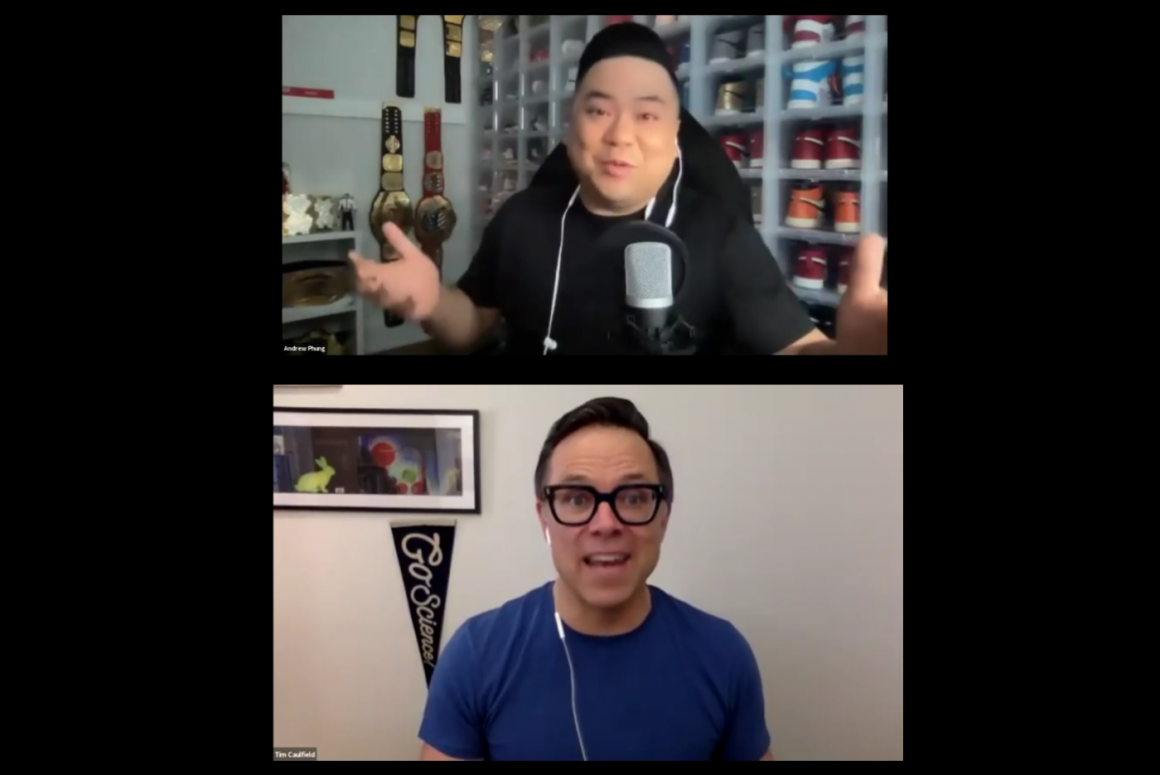
Truth vs civility online: Fact, fiction and funny
By Enobong Ukpong, March 4 2021—
As the influence of social media on our lives grows, productive conversations online appear to be diminishing. Every day more people express growing concerns for the polarization of our politics, the popularity of conspiracy theories and the increase in hostility and radicalization.
In the fourth webinar in the University of Calgary’s Pluralism and Global Citizenship series, panellists discussed misinformation on the internet, and what humour and civility can bring into the online conversation.
“Embracing pluralism strengthens our ability to take on the challenges that face us and helps us to prosper in new ways,” said Deborah Yedlin, U of C chancellor and co-moderator of this webinar alongside Dr. Aleem Bharwani.
The webinar began with a fireside chat with panelists Timothy Caulfield and Andrew Phung. Caulfield is a professor in the Faculty of Law and School of Public Health at the University of Alberta. Phung is best-known as the award-winning star of Kim’s Convenience. He’s also a U of C alumnus.
Caufield discussed the academic research over which tone is the most effective on the internet. While the tendency towards polarizing and snarky tones may be seen as a negative, some evidence shows that it does get clicks. For example, articles with negative headlines tend to outperform positive ones in terms of click-through rates. The downside is that negativity erodes trust in the participants of the conversation, creating a combative environment.
“I think if you want to have an ongoing conversation with your audience […] you need to be respectful, you need to listen, you need to be empathetic,” said Caufield. “The evidence shows us, long-term, that matters.”
Phung has had intimate experiences with the effects of online toxicity. In 2018, he made a tweet expressing his frustration with a police officer who made a racist comment. Initially, the majority of the responses were positive, but he was quickly accused of lying and virtue-signalling. To Phung, this demonstrated how it’s not always possible to have constructive conversations on the Internet.
“It takes ideal circumstances. And that’s one where it was not going to be possible because I was already labelled a liar,” said Phung. “Because of that bias […] and the inability to listen, I could not have a conversation with them.”
Now, when he does speak out, he tends to keep it short and uses humour to make his point.
But, Phung recognizes that humour has its time and place. He warns against using humour when trying to have a constructive conversation with someone as it may come off as devaluing what the other person is saying. But, humour can be useful in pointing out how ridiculous conspiracy theories are. As an example, he gave an anecdote of convincing his father that no, smoking does not cure COVID-19.
“At the end of the day, it is possible to have an online discussion, as long as all parties are willing to listen, respect others and understand that you might all disagree at the end of it,” said Phung to the Gauntlet after the webinar.
Follow-up on the full recording online.
